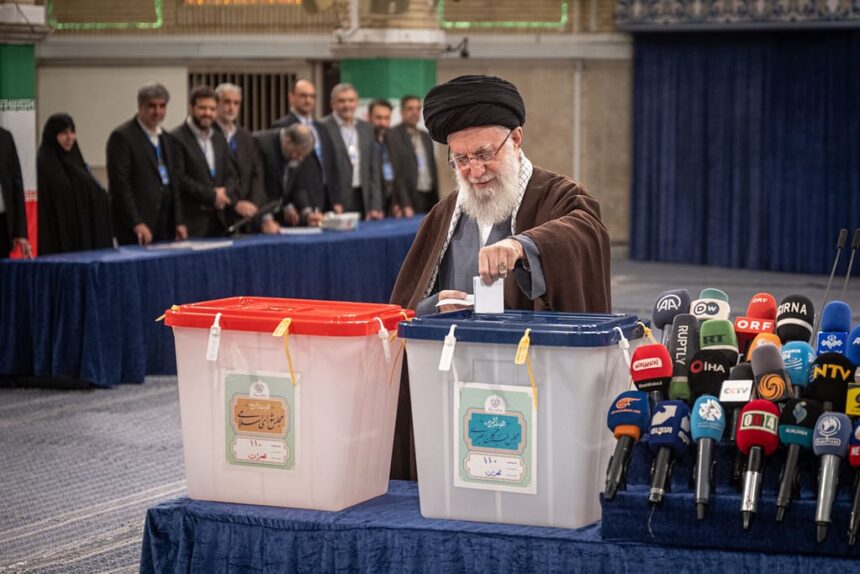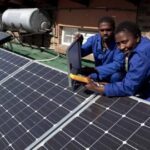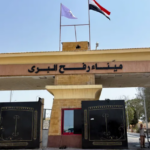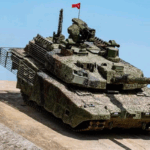It was against a backdrop of political and social instability that Iranians were called to the polls on Friday 1 March 2024 to elect their deputies and members of the Assembly of Experts. While the legitimacy of the Islamic Republic has been declining for several months, abstention reached a level not seen since the 1979 Revolution. While the ultra-conservatives are still holding firm, it seems wise to question the regime’s durability at a time when the regional and international context places Iran at the heart of the « axis of resistance ». What analysis can we draw from the results, and what conclusions can we draw from the current political situation in Iran? Thierry Coville, researcher at IRIS and Iran specialist, provides some answers.
What was the political, economic and social background to the parliamentary elections in Iran? Was the predicted record abstention confirmed?
The parliamentary elections were held against a backdrop of unprecedented political crisis in Iran, as these were the first elections following the protests against the death of Mahsa Amini in September 2022. This political crisis is coupled with an economic crisis, as Iran has seen record inflation of around 40% since Donald Trump withdrew from the nuclear deal in May 2018. With the Islamic Republic of Iran regularly reiterating the legitimacy of its political system through these elections and the turnout, all observers were waiting to see how turnout would evolve in such a context. There are two conflicting narratives. On the one hand, according to the Iranian press, turnout was around 41%, the lowest turnout since the Revolution. In addition, the turnout was even lower in some large cities (nearly 24% in Tehran), and there were a large number of blank ballot papers. In the capital and fourteen other provinces, no candidate obtained the necessary number of ballots (20% of the vote) to be elected in the first round, another sign of popular disaffection. In some major cities, the blank ballot paper even came first or second. All these factors reflect the dissatisfaction of a majority of the population with the political system. On the other hand, you have the defenders of the Islamic Republic who point to a good turnout in the elections, above and beyond expectations and the 30% announced in polls a few weeks ago. A turnout of 40% in a context of political and economic crisis shows that there is still a popular base that supports the Islamic regime. However, there is still a consensus to confirm the perception of a political deadlock with such a low turnout.
What influence will these elections have on the Islamic regime and its policies? Will Iran’s conservatives emerge stronger from the election?
The direction taken since 2018 by the top of the State and the Guide Ali Khamenei has placed the ultra-conservatives in control of all the powers in Iran. By manipulating the elections and eliminating the more critical candidates, Ali Khamenei has made it easier for the conservatives to win the parliamentary elections in 2020 and the presidential elections in 2021. In the end, this strategy is continuing, as many reformist candidates were unable to stand in the parliamentary elections and the ultra-conservatives who support Ebrahim Raissi and the leader Ali Khamenei should retain a comfortable majority in the Iranian parliament. The ultra-conservatives’ political strategy of controlling all power has therefore not changed. Nevertheless, it is a control with an increasingly fragile popular legitimacy, as shown by the low turnout and the high proportion of blank votes. This raises questions about the legitimacy of the Parliament, which will be sitting for four years.
Since 7 October, how have the country’s domestic and foreign policies been shaping up? Has the difficult regional and international context had an influence on Iran’s domestic policy?
As far as foreign and regional policy is concerned, as long as it is primarily decided by the leader Khamenei, his entourage and the Pasdaran leaders, the ideological line of support for the « axis of resistance » and against the State of Israel remains the same. Under no circumstances will the main leaders change this policy because they have less legitimacy within the country. For them, the ideological project of the Islamic Republic of Iran, which includes the fight against Israel and support for the Palestinians, must continue. It is interesting to note that since 7 October there have been no mass demonstrations in support of the Palestinians, as there have been in other major Muslim countries. Why not? Because even though a large proportion of Iranians are against what is happening in Gaza and are prepared to protest in support of the Palestinians, there is political unease and opposition to the regime. If the Islamic Republic says « black », a large part of the population will say « white ». So the regime seems worried, because if it organised mass demonstrations, there probably wouldn’t be as many people as hoped. All in all, we can see that the main thrusts of Iran’s regional policy have been somewhat strengthened since 7 October, but that support for this « axis of resistance » is by no means unanimous among the population. There is another notable element: the caution and pragmatism of the Islamic Republic which, even if it is ideologically fiercely opposed to Tel Aviv, has no desire whatsoever to fall into open conflict with the United States and Israel. Tehran is undoubtedly sending messages to its allies such as the Houthis and the Shiite militias in Iraq and Syria to prevent the conflict from going too far.
Translated by Deepl.
Thierry Coville
Source: French Institute for International and Strategic Affairs (IRIS)







